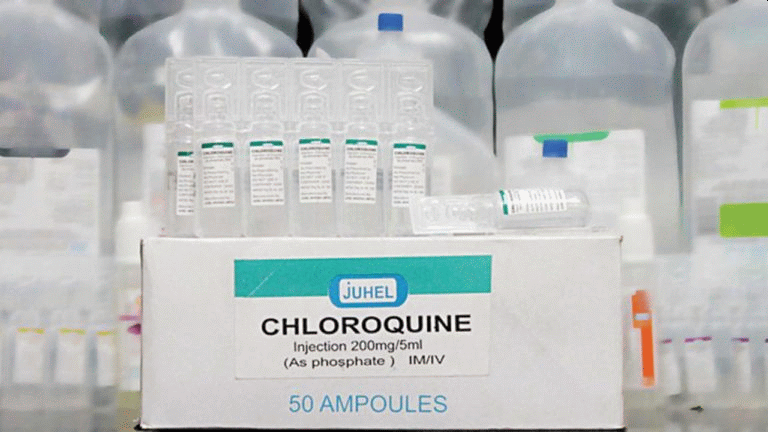Several scientists have cast doubt on the outcome of microbiologist Didier Reoult findings that anti-malaria drug chloroquine can help beat the coronavirus.
Dr. Raoult, whose theory has been taken up by US President Donald Trump, said his new study of 80 patients showed that four out of five of those treated with the drug had “favourable” outcomes.
He had earlier reported that after treating 24 patients for six days with hydroxychloroquine and the antibiotic azithromycin, the virus disappeared in all but a quarter of them.
The research has not yet been peer reviewed nor formally published in a medical journal.
But in a report by AFP, the scientists said the testing was not carried out in a controlled study and that the results were purely “observational”.
Raoult’s critics pointed to problems with the protocol of his testing and worrying side effects of the drug.
Fakemed, a group of scientists against fake news in health, lambasted the 68-year-old professor.
Statistician Tim Morris of the university’s clinical trials unit was even more scathing.
“If hydroxychloroquine turns out to be useful,” he tweeted, “it’s a shame that this group will be praised as heroes and prophets instead of held to account for the misinformation and self-promotion they’ve been churning out at a critical time.”
Chloroquine and hydroxychloroquine, which is often sold as Plaquenil, have been hailed as a potential “gamechangers” by Trump, but US government experts are as yet unconvinced, with Dr Anthony Fauci, the head of the US National Institute of Allergy and Infectious Diseases, calling the results so far “anecdotal”.
Dr. Philippe Gautret, who was part of the team behind Raoult’s latest findings, admitted that they only used the combination of drugs on “patients who had not been showing signs of being seriously ill after admission” to the hospital.
“Our strategy was precisely to treat them at that stage to stop the disease getting to a more serious stage,” he told AFP.
“A doctor can and must think like a doctor and not like a methodological researcher,” Raoult wrote in an article for the French Le Monde daily, defending his methods.
According to his latest study, 65 of the 80 patients treated improved and were discharged from hospital in an average of less than five days. One patient aged 74 was still in intensive care and another aged 86 died.
Two Chinese studies have shown that “10 days after the start of symptoms, 90 percent of people who have a moderate form (of the disease) have a controlled viral load,” epidemiologist Dominique Costagliola, of the French health research institute Inserm, told AFP.
The fact that they got these results using hydroxychloroquine “does not make the case for its effect,” she said.

 Entertainment6 days ago
Entertainment6 days ago
 Health1 week ago
Health1 week ago
 Health4 days ago
Health4 days ago
 Football1 week ago
Football1 week ago
 Football1 week ago
Football1 week ago
 Crime5 days ago
Crime5 days ago
 Education6 days ago
Education6 days ago
 Health6 days ago
Health6 days ago

